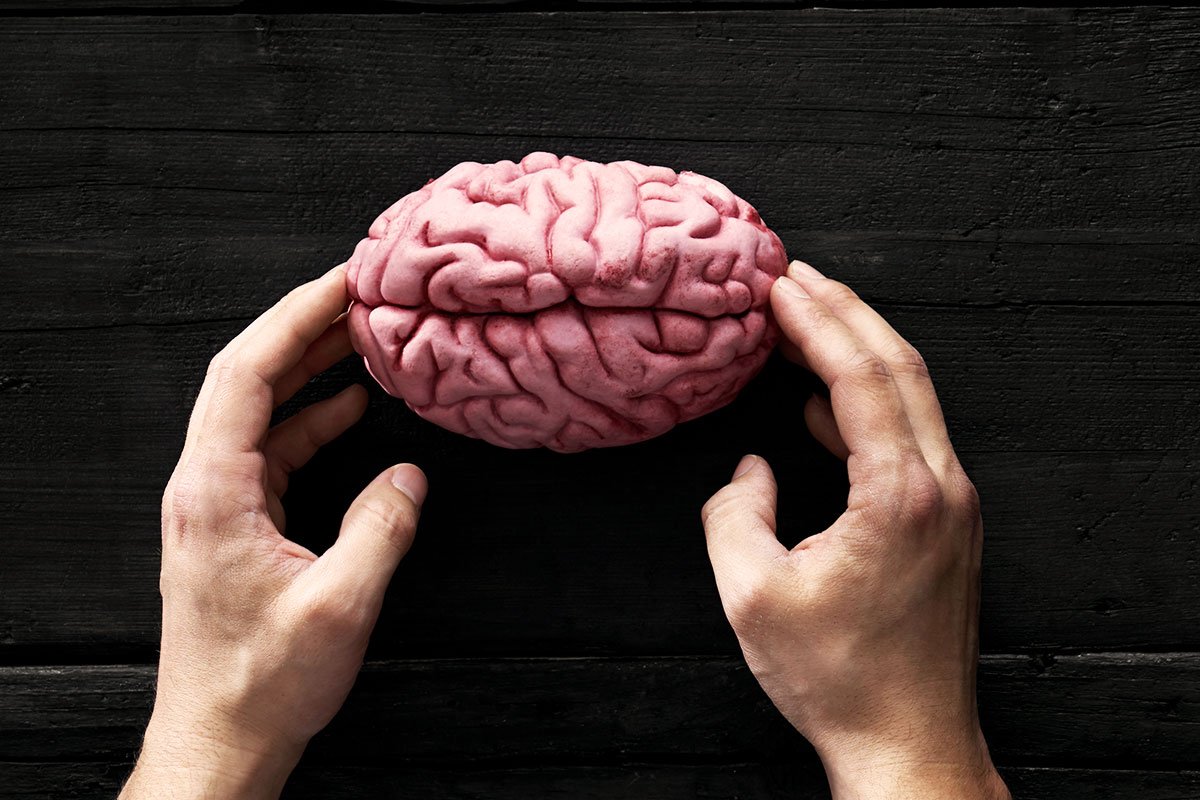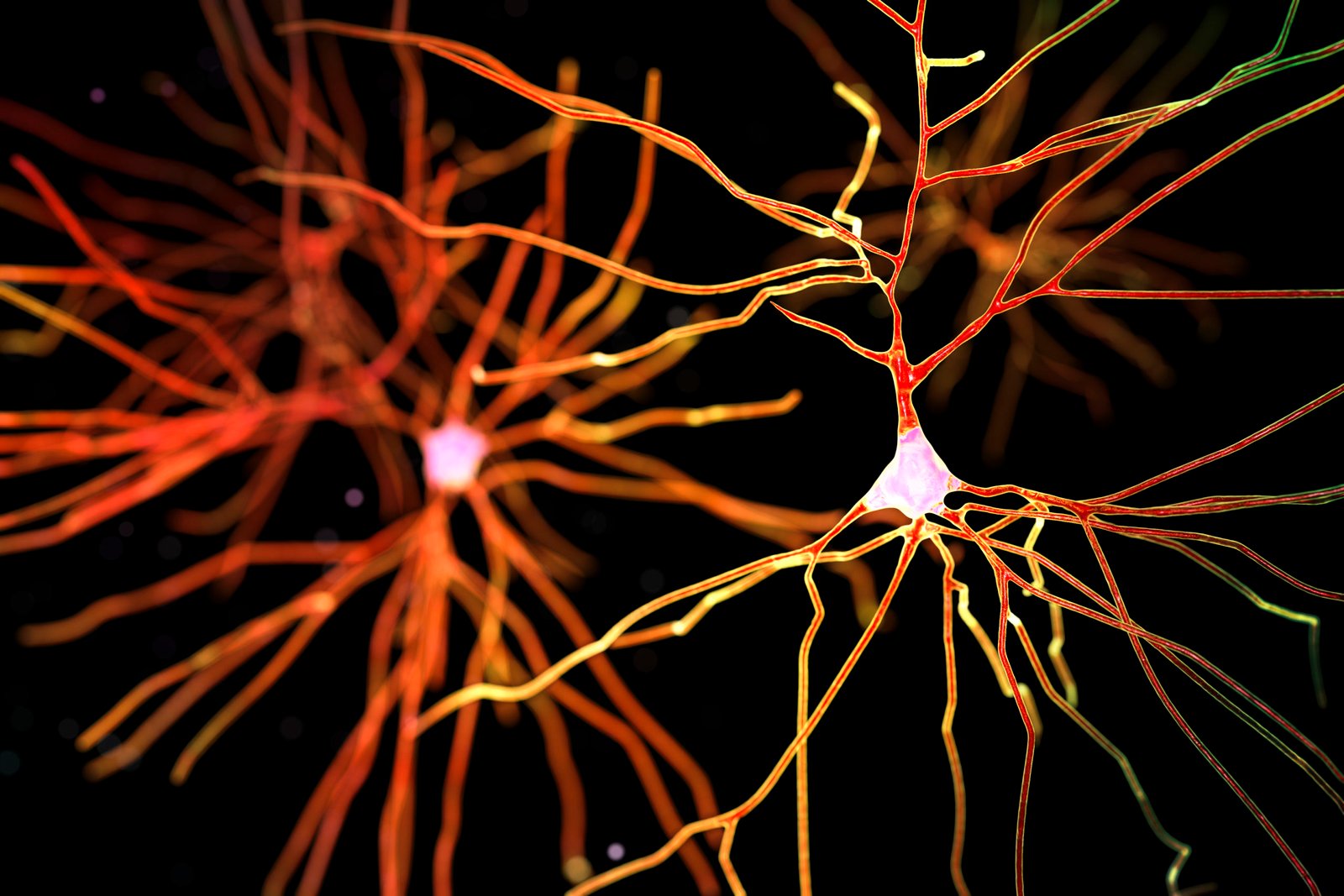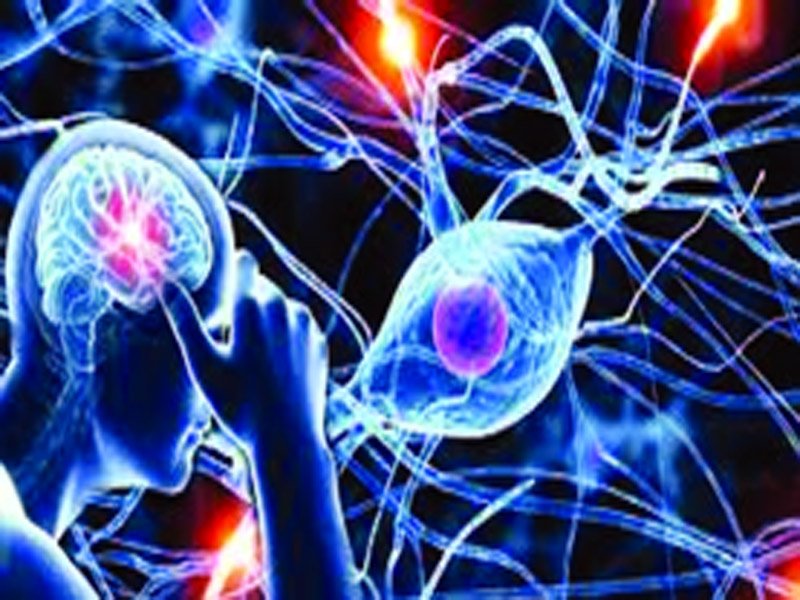7 Neurological dysfunction indicators in adults you shouldn’t ignore

In response to the World Well being Group, neurological issues have an effect on tens of millions of individuals worldwide, and the prevalence will increase with age [1].
Because the world’s inhabitants ages, it’s essential to acknowledge the warning indicators of sure circumstances to detect and deal with them as early as attainable.
Detecting neurological issues of their preliminary phases can considerably have an effect on remedy outcomes.
Early prognosis permits for immediate initiation of acceptable therapies, doubtlessly slowing down the development of the illness and even reversing among the signs.
This text will delve into the 7 warning indicators of neurological issues in adults, exploring the completely different signs, their potential causes, and the significance of consulting a healthcare skilled for additional analysis.
7 early indicators of grownup neurological issues
1. Sudden onset of extreme complications
Extreme complications are intense ache, usually described as throbbing, stabbing, or pulsating. They are often debilitating and considerably influence an individual’s every day functioning.
In the event you expertise sudden complications with none obvious trigger, it could be a symptom of a neurological situation.
A few of the potential causes of sudden extreme complications embody:
Migraines
Cluster complications
Rigidity complications
Subarachnoid hemorrhage
Mind tumor
Meningitis
How one can differentiate a migraine from a neurological dysfunction
Whereas migraines will be excruciating and disruptive, they usually don’t point out an underlying neurological dysfunction.
In case you all of a sudden have extreme complications with none historical past of migraines, it’s advisable to hunt the opinion of a healthcare skilled for additional evaluation.
That is significantly essential if the headache is accompanied by extra signs, like fever, neck stiffness, confusion, or lack of consciousness, as these may sign a extra severe neurological concern [2].
2. Unexplained reminiscence loss
Reminiscence loss can manifest in numerous methods, affecting short-term and long-term reminiscence. Brief-term reminiscence loss includes issue recalling latest occasions or data, whereas long-term reminiscence loss impacts the power to recollect previous experiences and realized information.
Unexplained reminiscence loss, significantly when it impacts every day functioning and happens alongside different signs, generally is a warning signal of a neurological-related incapacity.
Reminiscence loss may end up from a number of elements, together with regular growing old, stress, sleep deprivation, and sure drugs.
Nonetheless, reminiscence loss might point out an underlying neurological concern when extreme, progressive, or unexplained. Some potential neurological causes of reminiscence loss embody [3]:
Alzheimer’s illness
Vascular dementia
Parkinson’s illness
Traumatic mind damage
Mind tumors
What’s the distinction between regular growing old and a neurological dysfunction
Please keep in mind that experiencing some reminiscence decline is a pure growing old course of.
Nonetheless, vital reminiscence loss that impacts every day functioning happens all of a sudden or is accompanied by different signs warrants additional investigation by a healthcare skilled.
Early detection and intervention can enhance outcomes for people experiencing reminiscence loss because of a neurological dysfunction.
3. Uncommon muscle weak point
Muscle weak point is lowered capability to generate power or carry out bodily duties. It will possibly seem in numerous methods, similar to bother lifting issues, going upstairs, or holding onto one thing tightly [4].
Uncommon muscle weak point that can’t be attributed to bodily exertion, lack of sleep, or different identifiable elements might be a symptom of a neurological situation.
Varied elements can contribute to muscle weak point, together with overexertion, growing old, damage, and sure medical circumstances.
Nonetheless, unexplained, persistent, or progressive muscle weak point might point out an underlying neurological concern. Some potential neurological causes of muscle weak point embody:
A number of sclerosis (MS)
Amyotrophic lateral sclerosis (ALS)
Guillain-Barré syndrome
Myasthenia gravis
Spinal muscular atrophy
How does muscle weak point pertains to neurological issues
Many neurological issues may cause muscle weak point, damaging the nerves that ship alerts to the muscle tissue. Subsequently, muscle weak point generally is a major symptom of those circumstances.
Early recognition of bizarre muscle weak point and session with a healthcare skilled can assist determine the underlying trigger and provoke acceptable remedy, enhancing the prognosis for people with neurological issues.
4. Lack of stability and coordination
Steadiness and coordination points can manifest in numerous methods, like instability whereas standing or strolling, issue performing nice motor duties, or frequent falls [5].
These points can considerably influence an individual’s capability to carry out every day actions and should sign an underlying neurological concern.
A number of elements can contribute to stability and coordination points, together with interior ear issues, muscle weak point, joint points, or sure drugs.
Nonetheless, these issues might point out a persistent, unexplained, or extreme neurological situation. Some potential neurological causes of stability and coordination issues embody:
Parkinson’s illness
Cerebellar ataxia
A number of sclerosis (MS)
Mind tumors
Stroke
How do neurological points have an effect on stability and coordination?
Many neurological issues have an effect on the mind areas and nerves liable for controlling stability and coordination, resulting in difficulties in these areas.
Figuring out and addressing stability and coordination points early on can assist enhance remedy outcomes and keep independence for people with neurological issues.
Consulting a healthcare skilled for additional analysis is important when experiencing unexplained or persistent stability and coordination issues.
5. Numbness or tingling sensations
Usually described as “pins and needles” or a sense of “falling asleep,” numbness or tingling sensations can happen for numerous causes.
These irregular sensations can have an effect on any physique half however are generally skilled within the palms, toes, arms, or legs.
They might sign a neurological concern after they happen continuously, persistently, or with out obvious trigger.
Numbness and tingling sensations may end up from a number of elements, together with stress on a nerve, poor blood circulation, or damage.
Nonetheless, when these sensations are unexplained, extreme, or widespread, they might point out an underlying neurological dysfunction [6].
Some potential neurological causes embody:
Peripheral neuropathy
Carpal tunnel syndrome
A number of sclerosis (MS)
Cervical spondylosis
Guillain-Barré syndrome
Can numbness and tingling be indicators of a major problem?
Numbness and tingling sensations will be major signs of varied neurological issues, as these circumstances usually harm the nerves liable for transmitting sensory data.
Recognizing and addressing these irregular sensations early on can assist determine the underlying trigger and provoke acceptable remedy, enhancing the prognosis for people with neurological issues.
Seek the advice of your medical skilled instantly when experiencing unexplained or persistent numbness and tingling sensations.
6. Persistent imaginative and prescient issues
Imaginative and prescient issues can manifest in a number of methods, similar to blurred or double imaginative and prescient, lack of visible area, issue recognizing colours, or sudden imaginative and prescient loss.
Whereas many imaginative and prescient points will be attributed to refractive errors, growing old, or eye ailments, persistent or unexplained imaginative and prescient issues might point out an underlying neurological dysfunction.
Varied elements can contribute to imaginative and prescient issues, together with eye pressure, cataracts, glaucoma, or macular degeneration.
Nonetheless, when imaginative and prescient issues are persistent, sudden, or unexplained, they might sign a neurological concern. Some potential neurological causes embody [7]:
Optic neuritis
Parkinson’s
Stroke
Migraines
Temporal arteritis
Alzheimer’s
{Photograph}: LightFieldStudios/Envato
What to do with persistent eye issues
It’s important to seek the advice of a healthcare skilled for additional analysis in the event you expertise persistent or unexplained imaginative and prescient issues, particularly if accompanied by different signs similar to headache, ache, or neurological deficits.
Early detection and intervention can enhance outcomes for people experiencing imaginative and prescient issues because of a neurological dysfunction and, in some instances, stop everlasting imaginative and prescient loss.
7. Sudden or gradual speech difficulties
Speech difficulties can manifest in numerous methods, similar to slurred speech, stuttering, issue discovering the suitable phrases, or issues with voice high quality.
These points can influence an individual’s communication capability and sign an underlying neurological dysfunction.
A number of elements can contribute to speech difficulties, together with stress, nervousness, listening to loss, or sure drugs.
Nonetheless, persistent, unexplained, or sudden speech difficulties might point out a neurological concern. Some potential neurological causes of speech difficulties embody:
Stroke
Mind tumors
Parkinson’s illness
A number of sclerosis (MS)
Amyotrophic lateral sclerosis (ALS)
How do speech difficulties relate to neurological issues
Speech difficulties will be major signs of varied neurological issues, as these circumstances usually contain harm to the mind areas or nerves liable for controlling speech and language.
If somebody is experiencing speech difficulties because of a neurological dysfunction, searching for early session with a healthcare skilled will be useful.
It will possibly result in figuring out the underlying trigger and beginning acceptable remedy, enhancing communication and general high quality of life.
How do you verify neurological signs?
Diagnostic assessments assist medical doctors determine the particular dysfunction, assess its severity, and monitor its development over time [8].
These assessments also can rule out different potential causes of the signs, offering invaluable data to information remedy selections.The particular diagnostic assessments will depend upon the affected person’s signs, medical historical past, and the suspected neurological dysfunction. A few of the most typical assessments embody:
Neurological examination
A complete analysis of a affected person’s psychological standing, cranial nerve perform, motor perform, sensory perform, reflexes, coordination, and gait. This examination can assist determine abnormalities within the nervous system which will point out a neurological dysfunction.
Blood assessments
These assessments can assist determine potential underlying causes of neurological signs, similar to infections, irritation, metabolic issues, or vitamin deficiencies. Some blood assessments also can assist diagnose particular neurological circumstances, similar to a number of sclerosis or Guillain-Barré syndrome.
Imaging strategies
Medical imaging applied sciences like MRI, CT, and PET scans can produce complete mind and spinal wire photos. These photos can assist pinpoint structural irregularities, tumors, irritation, or different underlying neurological circumstances which will trigger sure signs.
Electroencephalogram (EEG)
An EEG data electrical exercise within the mind by way of electrodes positioned on the scalp. This take a look at can assist diagnose epilepsy, sleep issues, or encephalopathy.
Electromyography (EMG) and nerve conduction research
These assessments measure {the electrical} exercise of muscle tissue and nerve sign pace to assist in diagnosing circumstances like peripheral neuropathy, myasthenia gravis, or ALS.
Lumbar puncture (spinal faucet)
A lumbar puncture includes gathering a pattern of cerebrospinal fluid (CSF) from the spinal canal. Analyzing the CSF can assist diagnose circumstances similar to meningitis, a number of sclerosis, or subarachnoid hemorrhage.
Genetic testing
These assessments can determine particular genetic mutations or abnormalities related to sure neurological issues, similar to Huntington’s illness, Parkinson’s illness, or sure types of dementia.
Correct prognosis is essential for figuring out the suitable remedy and administration plan for people with neurological issues.
In closing
We’ve explored the seven warning indicators of neurological issues in adults. Recognizing these warning indicators is essential for early detection and intervention, which may enhance outcomes for people with neurological issues.
We additionally mentioned the significance of diagnostic assessments in figuring out neurological issues. Some widespread diagnostic assessments embody neurological examinations, blood assessments, imaging research, EEG, EMG, lumbar punctures, and genetic testing.
Healthcare professionals will decide probably the most acceptable diagnostic assessments primarily based on the person’s signs, medical historical past, and suspected neurological dysfunction.
Early and correct prognosis is important for initiating acceptable remedy and enhancing the standard of life for people with neurological issues.
[1]https://www.who.int/news-room/questions-and-answers/merchandise/mental-health-neurological-disorders
[2]https://medlineplus.gov/ency/patientinstructions/000424.htm
[3]https://www.msdmanuals.com/skilled/neurologic-disorders/symptoms-of-neurologic-disorders/memory-loss
[4]https://www.msdmanuals.com/residence/mind,-spinal-cord,-and-nerve-disorders/symptoms-of-brain-spinal-cord-and-nerve-disorders/weak point
[5]https://www.medicalnewstoday.com/articles/balance-problems
[6]https://www.medicalnewstoday.com/articles/326062
[7]https://www.nvisioncenters.com/neurological-disorders/
[8]https://www.msdmanuals.com/residence/mind,-spinal-cord,-and-nerve-disorders/diagnosis-of-brain,-spinal-cord,-and-nerve-disorders/tests-for-brain-spinal-cord-and-nerve-disorders
{Photograph}: westend61/Envato


